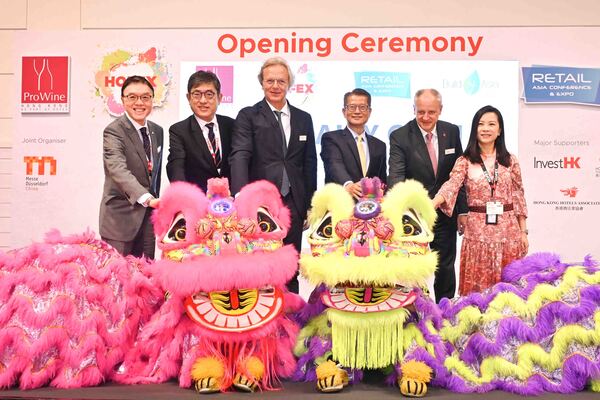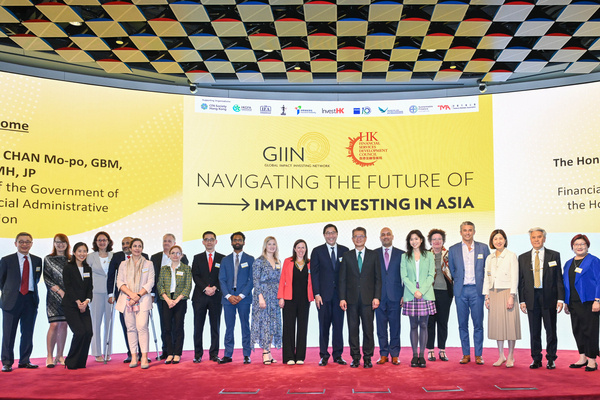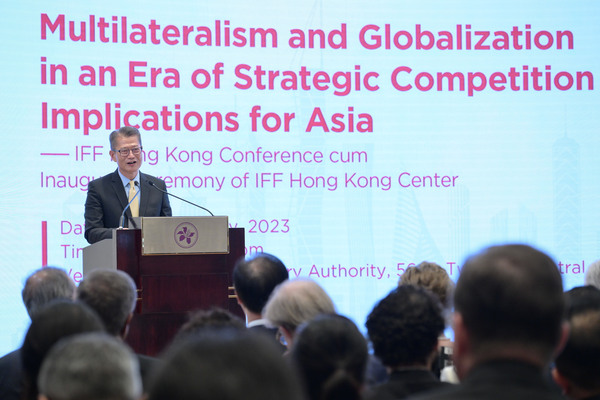
The Transport & Logistics Bureau signed a Memorandum of Understanding (MOU) with the Guangzhou Port Authority yesterday to promote the co-operation, publicity and promotion of port and maritime services between Guangzhou and Hong Kong in order to provide higher quality, more efficient, fairer, more sustainable and safer port and maritime services and protection. It strives to turn Guangzhou and Hong Kong into a leading domestic and international demonstration zone for port and maritime management, and to enhance the international competitiveness and influence of the Guangdong-Hong Kong-Macao Greater Bay Area port cluster towards the world. At the same time, we will strengthen the exchange of talent to better integrate into the overall development of the country.
The MOU is a concrete example of tapping the Greater Bay Area synergy to enhance mutual competitiveness. By establishing a collaboration mechanism, sharing regulatory and management standards, enhancing promotion as well as manpower exchanges, Hong Kong is set to drive the development of a world-class port cluster with high value-added maritime services.
Under the principle of “one country, two systems” and as enshrined in the Basic Law, Hong Kong practises the common law with which the international shipping community is more familiar. In addition, Hong Kong is an international financial, trade and shipping centre, as well as the world’s largest offshore renminbi business centre. With the central government’s support, Hong Kong acts as a super-connector to proactively integrate and contribute to the dual circulation development strategy of our country, participates in the development of the bay area and connects to the global community.
In recent years, Hong Kong has been actively seeking to strengthen and further develop our business environment, so as to boost our competitive edge amongst international maritime markets. With a series of tax measures implemented over the past years, more business establishments are finding Hong Kong more attractive. These measures included the introduction of tax exemption and concessions in 2020 to, number one, qualifying ship leasing activities by ship lessors and ship leasing managers, and number two, marine insurance businesses. To keep the momentum, we introduced last year half-rate profits tax concessions to qualifying shipping commercial principals, including ship agents, ship managers and ship brokers. All in all, these tax concessions aim to offer a welcoming business environment to these drivers of shipping activities, which are paramount to enhancing the competitiveness of Hong Kong’s maritime industry.
We have recently set up a Task Force on Maritime & Port Development Strategy to formulate strategies to further promote the development of Hong Kong as an international maritime centre. The task force will put forward an action plan on key strategies within this year to explore measures to strengthen our edge in high value-added maritime services.
We count on a rich pool of practitioners for the long-term development of the maritime and port industry. That is why the Government and the maritime sector are committed to building up our talent pool and enhancing the professionalism of our practitioners. On the part of the Government, we will on one hand launch a Maritime Services Traineeship Scheme this year for young people who aspire to a career in maritime law, and on the other hand inject 200 million dollars into the Maritime & Aviation Training Fund to support manpower training for home-grown talents.
With our industry professionals, unique strengths and well-developed maritime cluster, I am more than confident that Hong Kong will continue to play an important role in the provision of high value-added professional services to the global maritime industry and contribute to the further development of the overall maritime capability of the bay area.
Secretary for Transport & Logistics Lam Sai-hung wrote this article and posted it on his blog on May 20.





